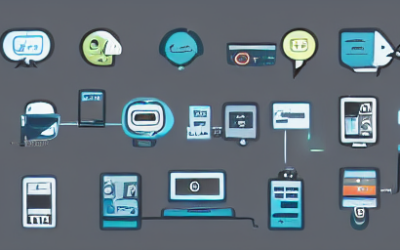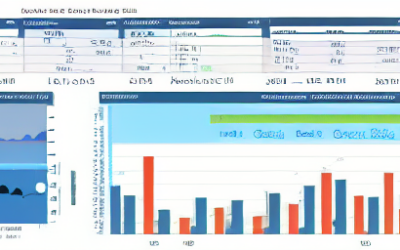The Internet of Assets (IoA) is a term that describes the physical world being connected to the digital world. It enables companies to track and manage physical assets, such as vehicles, equipment, and inventory, and to capture data from them in real-time. This data can then be used to improve asset performance, optimize business operations, and create new revenue streams.
Tech Blog
Tech Insights, Information, and InspirationTop Programming Languages
In today’s tech-driven world, it is essential to have knowledge of the top programming languages. Programming languages are used to create software and apps, and to communicate with computers. The top programming languages today are Python, JavaScript, Java, C/C++, C#, PHP, and SQL.
Enterprise App Development
Enterprise app development is the process of creating and developing applications specifically designed to meet the needs of businesses. These apps are designed to help businesses manage their operations, increase efficiency, and improve customer engagement.
QMS Software
QMS software stands for Quality Management System software. It is a software system that helps organizations manage their quality processes and procedures. Quality management systems are designed to help organizations meet customer requirements and improve operational efficiency.
Sustainable Technology
Sustainability technology is a term used to describe the use of technology to create a more sustainable and eco-friendly lifestyle. It encompasses a range of practices and products that are designed to reduce the environmental impact of everyday living. Examples of sustainability technology include renewable energy sources such as solar and wind power, energy efficiency technologies, green building technologies, and green transportation systems.
Cloud Computing Solutions
Cloud computing solutions are a type of technology that uses the internet to store, manage, and process data. It is a form of technology that has become increasingly popular in recent years due to its flexibility and scalability. The biggest benefit of cloud computing is that it allows businesses to access large amounts of computing power without having to invest in expensive hardware and software.
What is Kubernetes?
Kubernetes is an open-source container orchestration system used to automate the deployment, scaling, and management of containerized applications. It enables users to schedule and manage containerized applications on clusters of hosts. Kubernetes was originally developed by Google and is now maintained by the Cloud Native Computing Foundation.
The Stages of Data Analytics
Data analytics is the practice of collecting, cleaning, organizing, and analyzing large sets of data to identify meaningful patterns and trends. The goal of data analytics is to bring insights to business processes and operations, helping organizations make smarter decisions and achieve better outcomes. Data analytics can be used to drive customer segmentation, marketing campaigns, product innovation, and more.
Infrastructure as Code (IaC)
Infrastructure as Code (IaC) is a type of DevOps practice that enables organizations to manage and provision their IT infrastructure using software code. It is an approach to managing and configuring computing infrastructure (networks, virtual machines, storage, and so on) in a programmatic way. This includes the automation of manual processes, such as the deployment and configuration of cloud resources.
RPA Software Technology
Robotic Process Automation (RPA) software is a type of technology that enables businesses to automate high-volume, time-consuming tasks. This type of software uses artificial intelligence (AI) and machine learning algorithms to automate manual, repetitive tasks. It is designed to increase efficiency, reduce costs, and improve customer service.
Get In Touch
UseTech Design, LLC
TROY, MI • BLOOMFIELD HILLS, MI
Call or text +1(734) 367-4100









